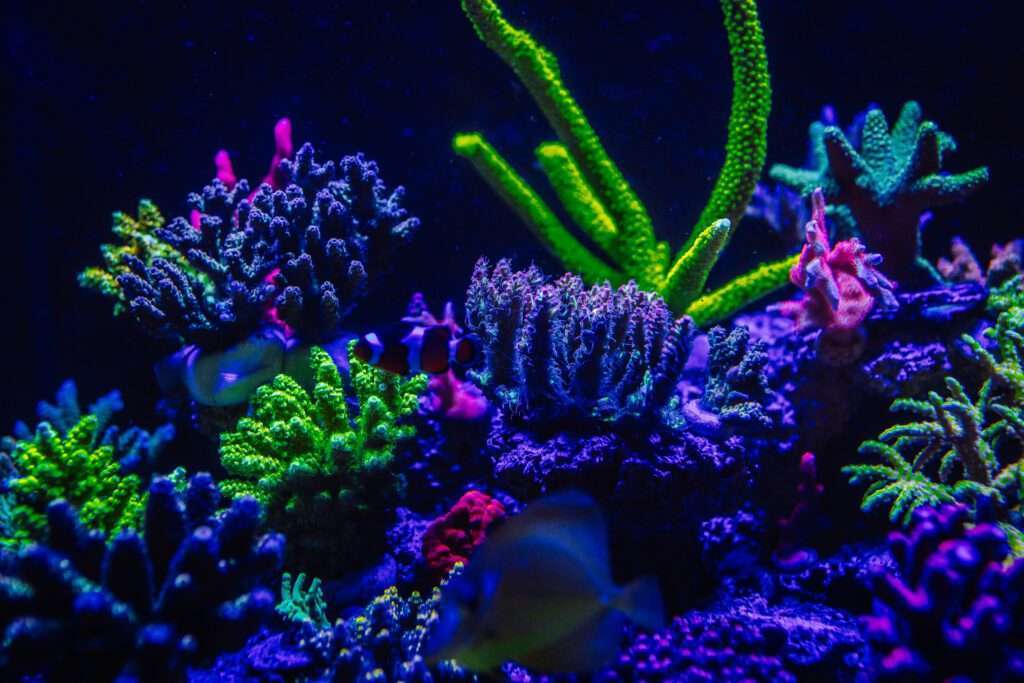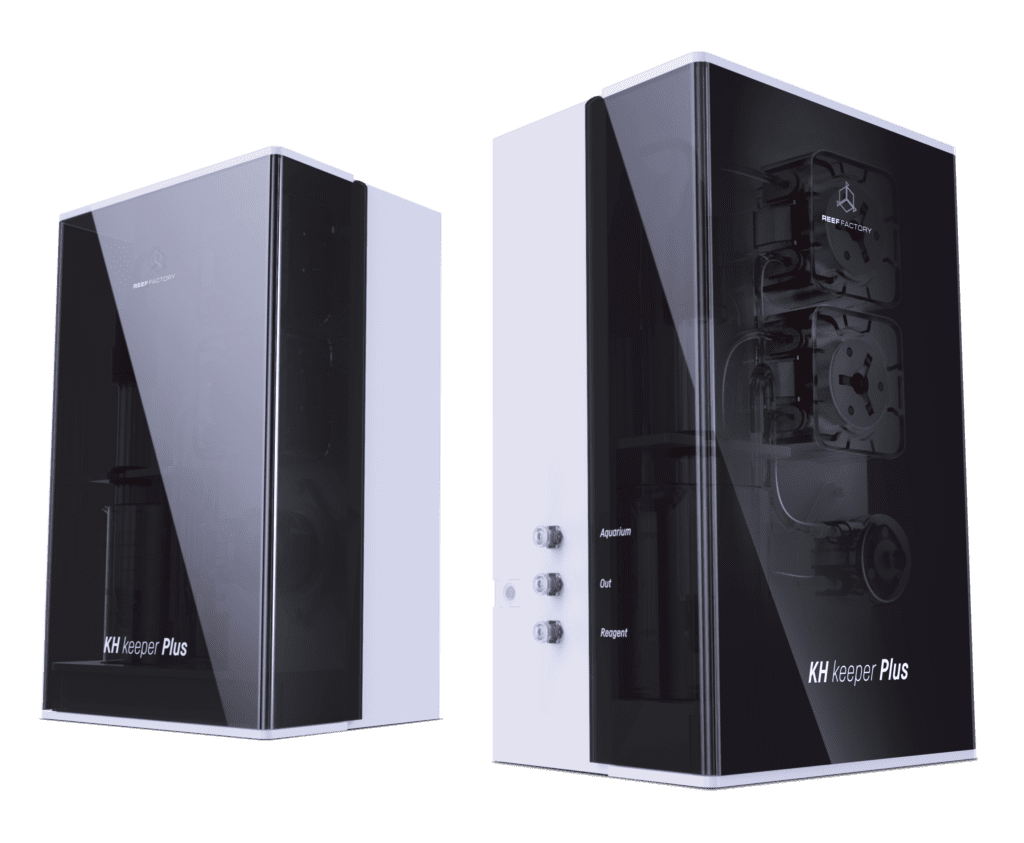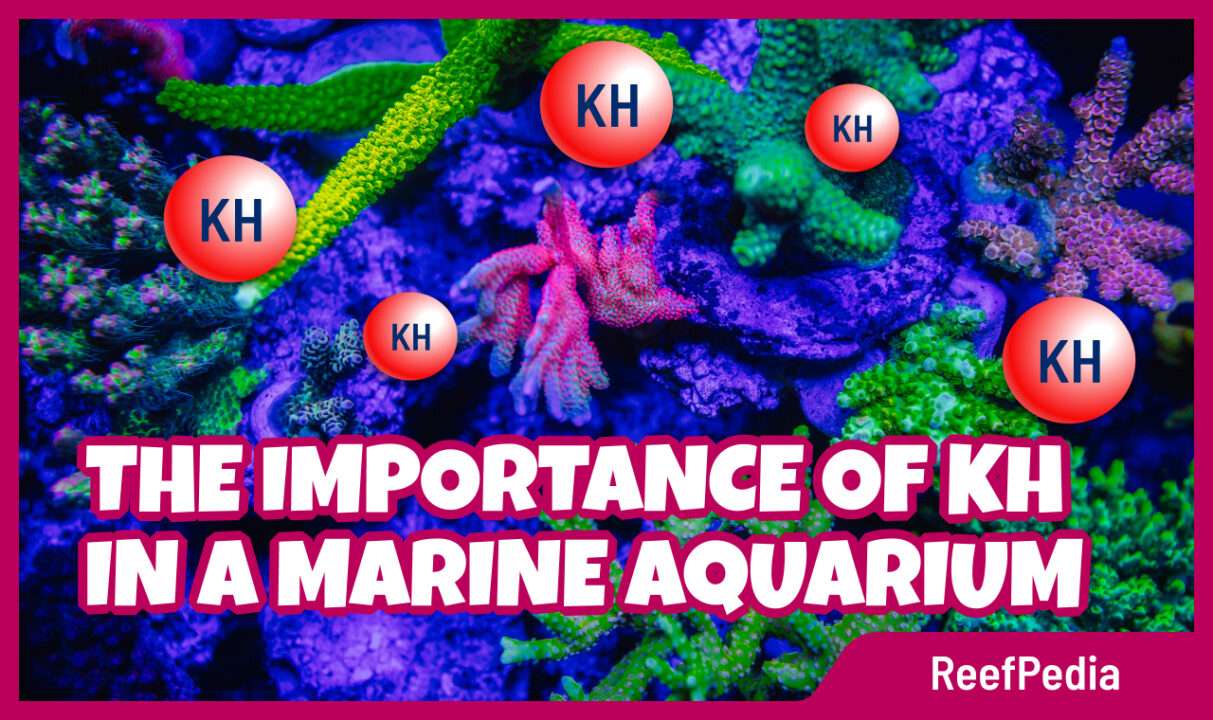Table of Contents
The importance of KH – Introduction
Maintaining a healthy and stable marine aquarium is a challenge that requires knowledge and understanding of many water parameters. One of the key parameters is carbonate hardness, or KH (carbonate hardness). The importance of KH in a marine aquarium is crucial and can have a significant impact on the health and development of corals and other organisms in the aquarium.

What is KH?
KH, or carbonate hardness, refers to the concentration of carbonate and bicarbonate ions in the water. In simple terms, KH measures the water’s ability to neutralize acids, known as buffering capacity. The higher the KH level, the more stable the pH of the water, meaning it is less prone to sudden changes in acidity.
The importance of KH in a marine aquarium
The importance of KH in a marine aquarium is very significant; below is the confirmation of this fact.
- pH Stability: In a marine aquarium, stable pH is essential for the health of all its inhabitants. Too low or too high pH can lead to stress in fish, corals, and other invertebrates, and may even cause their death. KH acts as a buffer that prevents sudden changes in pH, providing a stable environment for life.
- Coral Growth: Carbonates are necessary for building coral skeletons. Hard corals, such as SPS (Small Polyp Stony) and LPS (Large Polyp Stony), use calcium carbonate for growth and maintaining their structures. A low KH level means there is less carbonate available in the water, which can slow down coral growth, weaken their structure, and increase the risk of coral bleaching.
- Resistance to Chemical Changes: Regular changes in water parameters, such as the introduction of new organisms, changes in lighting, or adding supplements, can affect water chemistry. A high KH level helps prevent drastic changes in these parameters, protecting the delicate aquarium ecosystem from destabilization.
- Support for Biological Processes: KH also plays a significant role in the biological filtration processes in the aquarium, such as the nitrogen cycle. Proper KH levels support the healthy development of nitrifying bacteria that convert toxic substances, like ammonia and nitrites, into less harmful nitrates.
Optimal KH value – the importance of KH in a marine aquarium
Most experts recommend that the KH level in a marine aquarium should be kept between 7-9 dKH. This range is close to the natural conditions found on coral reefs and provides the right balance for the organisms in the aquarium.
Stability of KH is more important than its level
When it comes to KH, the most important thing is to keep it stable. Some corals are sensitive to changes in KH. For example, certain coral species, like Acropora, do not tolerate changes of more than 0.3 dKH per day.
How to measure KH and maintain it at the proper level – the importance of KH?
- Regular Testing: To maintain the right KH level, regular water testing is essential. Tests can be performed using simple test kits like Smart Test Kits or more advanced devices, such as the automatic tester KH keeper Plus.
- Adding Supplements: If the KH level is too low, you can use various supplements, like the appropriate components such as Smart Components.
- Water Changes: Regular water changes with fresh, well-balanced saltwater also help maintain the proper KH level. Make sure the water used for changes has the correct parameters.

The importance of KH – Effects of fluctuations and an inappropriate KH level
Rapid changes or too low KH levels can cause pH instability, which can be dangerous for aquarium inhabitants. It can also slow coral growth, cause coral bleaching, or, in extreme cases, lead to coral death. On the other hand, too high KH levels can cause carbonate deposits, which may lead to problems with pumps, heaters, and other technical equipment in the aquarium. The main challenge is to keep the KH level stable. The key to success is automating this process by using quality components for measurement and dosing.
Conclusion
The importance of KH in a marine tank is crucial, as it affects the maintenance of a healthy and stable aquarium. Proper KH levels support pH stability, coral growth, biological processes, and the overall stability of the aquarium ecosystem. Therefore, it is important to regularly monitor this parameter and adjust dosing in response to any changes.
About the author

Marek Protasewicz
Reefkeeping has been my passion for over 10 years now. I love learning. The hobby has taught me many valuable lessons, patience being the best example. Combining work and passion is my path. I run Crazy Coral, a marine aquarium shop, for a number of years. Building this business from the scratch I learnt from my own mistakes at a heavy cost.
Later I managed a project aimed at development of methods for quick growth of Corals in non-natural conditions. The project was carried out by Get Sales, Poland. Presently, I am responsible for distribution strategy at Reef Factory, of which I am a co-founder. The company produces smart devices for marine aquaristics. The last projects I have been involved in are Social Reef and ReefPedia.



